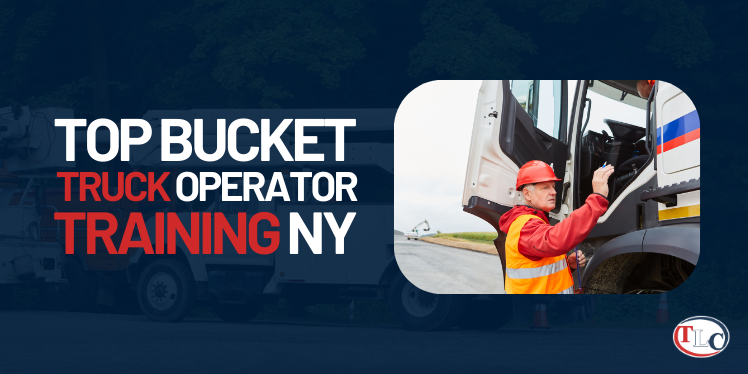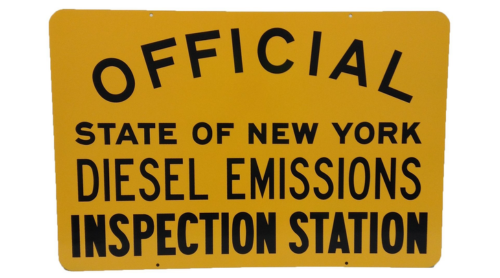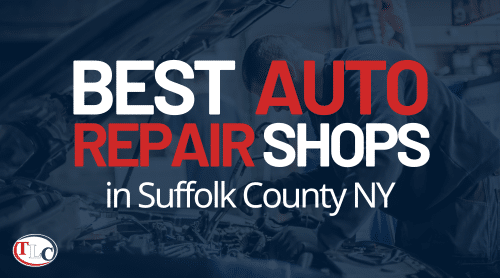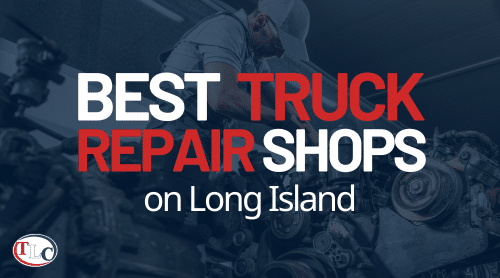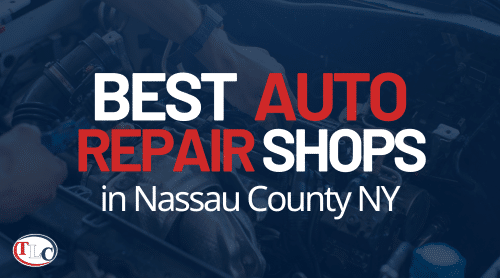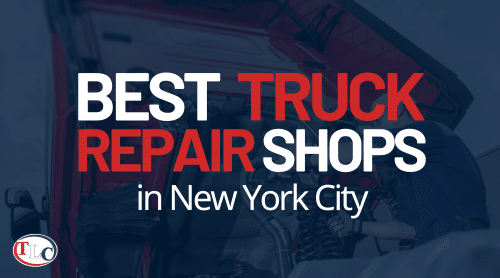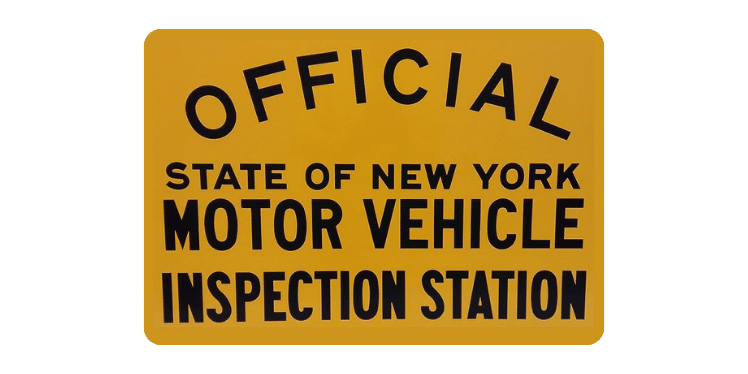Top Bucket Truck Operator Training NY
The Department of Transportation (DoT) for New York specifies that bucket truck operators require training according to ANSI (American National Standards Institute) and OSHA (Occupational Safety and Health Administration) requirements. Thankfully, several locations in the New York area offer bucket truck training.
Table of contents
Understanding Bucket Trucks and Operator Training
What Is a Bucket Truck?
Bucket trucks have several names, including boom trucks, lift trucks, aerial lift trucks, and cherry pickers. These names all describe the same class of vehicle. According to ANSI and OSHA standards, these vehicles are aerial lifts, which include equipment and vehicles made to lift loads and workers on the worksite.
Bucket trucks are used in several industries, including forestry, electrical work, construction, etc. The versatility of the bucket truck lends it to many different work sites, and the ability of the vehicle to have rough terrain tires and stabilizers makes it ideal for less-than-ideal workspaces.
These industrial trucks can vary in design depending on their ideal use case. Still, as far as ANSI and OSHA are concerned, these vehicles are all part of the aerial lift category.
Importance of Operator Training
Operator training is not only essential to the safe operation of these vehicles but also an industry standard and a legal requirement according to the DoT for New York. Operating a bucket truck is much different from driving a standard vehicle. Even someone with a CDL or other industrial truck experience can only drive a bucket truck with training.
OSHA and ANSI require employees to undergo operation and safety training before operating a bucket truck. This practical training also includes maintenance instruction to keep the bucket truck in working order and prevent safety precaution failure due to upkeep negligence.
Allowing employees time to become familiar with the bucket truck controls and hiring an experienced trainer to conduct employee evaluations are all important parts of learning to operate a bucket truck. Some standards require certificates of training on record for all bucket truck operators. Using a certified training school helps with these requirements.
Training Essentials and Standards
Training Requirements in NY
According to the DoT for New York, when operating a boom device (which includes bucket trucks):
“[O]ne crew member trained in the operation of the ground controls shall remain readily available on the ground at all times while the lift is operating. Only properly trained employees shall operate any aerial lift. Ground controls shall not be operated without permission from the employee(s) ‘in the air,’ except in emergencies.“
As far as the training requirements for employee managers, the DoT requires that regional managers provide employees with
“initial and periodic refresher training in accordance with current ANSI requirements A92.5 for ‘Boom-Supported Elevating Truck Platforms,’ A92.2 for ‘Vehicle Mounted Elevated & Rotating Aerial Devices,’ and A92.8 for ‘Vehicle Mounted Bridge Inspection Devices.’”
In short, the New York DoT requires all bucket truck operators always to follow ANSI standards for safety and training protocols. They also require all bucket truck operators and employees to follow the electrical safety requirements put forth by ANSI and the DoT.
Employers looking to train their employees should look for bucket truck operator training courses adhering to ANSI and OSHA standards.
Industry Standards: ANSI & OSHA
Both OSHA and ANSI have extensive requirements around the operation and inspection of bucket trucks and all aerial lifts. Ignoring these requirements can come at a high cost for employee safety and legal complications.
OSHA Requirements
OSHA: 1910.67(c)(2)(ii) states that “Only trained persons shall operate an aerial lift.” Covering all the OSHA requirements around operating a bucket truck would require reading the entire OSHA handbook. This is why having experienced teachers to train your employees on the proper operation of a bucket truck is so important.
ANSI Requirements
ANSI training standards break down what a bucket truck operator should know into categories, including:
- The purpose and use of manuals
- Operating manuals are an integral part of the aerial platform and must be stored properly in the weather-resistant compartment when not in use
- A pre-start inspection
- Responsibilities associated with problems or malfunctions affecting the operation of the aerial platform
- Factors affecting stability
- The purpose of placards and decals
- Workplace inspection
- Safety rules and regulations
- Authorization to operate
- Operator warnings and instructions
- Actual operation of the aerial platform
The guidelines also note that this is only part of the full extent of training for employees, only a guide for some of the basics covered in training courses.
They also require a “hands-on” training period, noting,
"Under the direction of a qualified person, the trainee shall operate the aerial platform for a sufficient period of time to demonstrate proficiency in the actual operation of the aerial platform.”
Section 7.6 also says,
"Whenever a user directs or authorizes an individual to operate an aerial platform, the user shall ensure that the person has been: (1) Trained before being assigned to operate the aerial platform.”
Types and Components of Bucket Truck Training
Theoretical and Practical Training Aspects
Knowledge about bucket trucks and the practical operation of a bucket truck are two different skills entirely. Most training courses combine intellectual, theoretical knowledge about procedures with hands-on practice, allowing employees to put their knowledge into practice.
For example, knowing how to operate a bucket truck and operating said truck in the field are two different skills. Thankfully, certified bucket training courses include operation under the instruction and supervision of an experienced, accredited bucket truck operator. This allows for safe skill practice and offers employee learning opportunities.
ANSI-adherent training includes both theoretical classroom learning as well as hands-on learning expectations. Their training requirements include general as well as familiarization training.
Safety Procedures & Emergency Protocols
ANSI 8.6 states, “Before operation, the operator shall:
(1) Read and understand the manufacturer’s operating instruction(s) and user’s safety rules, or have them explained
(2) Understand all labels, warnings, and instructions displayed on the aerial platform or have them explained
(3) Ensure all occupants of the aerial platform wear appropriate personal protective equipment (PPE) for the conditions, including the environment in which the aerial platform will be operated.”
This information, as well as other safety procedures and emergency protocols, is part of the official training requirements put out by ANSI and those recommended by OSHA.
Operators are expected to be well-versed in hazardous situations and how to respond to them correctly. Operating on a dangerous work site or setting up a bucket truck on uneven ground are all covered in training.
The topics included in the ANSI guide for emergencies and general safety precautions include, but are not limited to:
- Fall Protection
- Slope and grade
- Deployment of stability-enhancing means
- Guardrail system
- Distribution of load
- Maintaining overhead clearance
- Electrocution hazard
- Personal protective equipment (PPE)
- Personnel footing
- Precaution for other moving equipment
- Reporting problems or malfunctions
- Reporting potentially hazardous locations
- Hazardous location operation
- Entanglement
- Capacity limitations
- Work area
- Fueling
- Battery charging
- Improper platform stabilization
- Misuse as a crane
- Unusual operating support conditions
- Travel speeds
- Driving requirements
- Securing the aerial platform
- Altering safety devices
- Snagged platform
- Vacating (or entering) an elevated aerial platform
- Modifications
- Assistance to the operator
- Problems or malfunctions
- Carrying materials (larger than the
- platform)
- Rated horizontal force
- Adequate support requirements.
- Leveling the aerial platform.
- Protecting against unauthorized use
As you can see, the amount of specialized training needed to operate a bucket truck under any circumstances, including in an emergency, requires comprehensive specialized training. Redoing this training is recommended in the case of an accident or a near-miss situation.
Practical Exam & Evaluation
ANSI- and OSHA-required training includes both certification of completion and a comprehensive understanding of procedures and operation requirements. This includes allowing employees to operate a bucket truck under the observation of a trained specialist.
Organizations offering bucket truck training should include a practical examination of the proper skills and a hands-on evaluation of bucket truck operation. Some locations provide employee training that also allows them to train other operators.
Recommended Training Providers
1. Tri-Lift Inc.
Located at 127 Falso Drive, Syracuse, NY 13211, Tri-Lift Inc. offers aerial lifts and repairs and services on aerial lifts. On top of this, they also provide aerial lift training, including bucket truck training. Training can be done at their facility or yours. This includes training flexibility.
Tri-Lift Inc.’s training includes the following topics:
- Safe Machine Operation
- Pre-Operational Inspections
- Maintenance
- Function Test
- Workplace Inspections
- Battery Handling and Charging
- Tilt-back Operation Instructions
- Lift Inspections
Review
As reviewer Rodney W. Mattingly said,
"This is one of the strongest family businesses in the northeast. They truly appreciate their customers and employees. More companies should operate this way, focusing on honesty, hard work & the future."
2. Fastline Safety Training
At 535 Broadhollow Rd STE B10, Melville, NY 11747, United States, Fastline Safety Training offers training courses on various equipment and specializations, including bucket truck and boom lift training courses. Their training covers more than just OSHA standards.
Fastline’s training course covers the following topics:
- Safe operation of scissor lifts under various conditions.
- Identification and use of lift controls.
- Navigating around obstacles and pedestrians.
- Handling scissor lifts on different terrains.
- Loading, moving, and unloading cargo.
- Routine maintenance and inspections.
- Hazard assessment in the surrounding environment.
Review
As former student Brett Harding said about Fastline Safety Training,
"Well organized and professional training. The instructor, Lisa, made the learning experience seamless and entertaining."
3. The LEARN Center
The LEARN Center, located at 819 15th Street, Ronkonkoma, NY 11779, covers various workplace safety topics. From Concrete and scaffolding courses to of course aerial lift and boom truck specifications, The LEARN Center is a cornerstone of workplace education.
Some of the LEARN Center’s class topics include:
- Asbestos / Lead Awareness
- Confined Space Entry
- Concrete and Masonry Construction
- Cranes, Derricks, Hoists, Elevators, and Conveyors
- Demolition Safety
- Ergonomics
- Excavations
- Flag Person
- Job Hazard Analysis
- Personnel Lifts / Aerial Lifts / Scissor Lifts Safety
- Motor Vehicles, Mechanized Equipment, and Marine Operations; Rollover Protective Structures and Overhead Protection; and Signs, Signals, and Barricades
- Risk Assessment and Accident Investigation
- Scaffolds – Suspended
- Steel Erection
- Welding and Cutting
- Health and Safety Programs in Construction
- Hour Foundations for Safety Leadership
Review
As former student, Yolonda Corrbett said of The LEARN Center,
"They go above and beyond to teach and give real feedback, advice , and solid teaching skills on how to safely operate all heavy equipment vehicles. It gave I was a part of a family amazing personalities to follow with really helping support you with all necessary knowledge to safely operate heavy-duty equipment."
Frequently Asked Questions
Is self-rescue training required to operate a bucket truck in NY?
While the DoT NY, ANSI, and OSHA do not specify if self-rescue training is required for operating a bucket truck, it is likely covered in training. If you have questions about topics covered in bucket truck safety training, contact one of the companies we’ve recommended. You can also reach out to OSHA directly for more information.
Is fall protection required in a bucket truck?
Yes, fall protection is required in a bucket truck. This includes harnesses, non-slip materials, and more. Be sure to wear all PPE when riding or operating a bucket truck.
Does OSHA require a certification to operate a bucket truck?
Yes, OSHA requires a written record of aerial lift training to operate a bucket truck. This training should follow all OSHA and ANSI guidelines. If you’re interested in bucket truck training, contact one of the companies we’ve noted here.
Conclusion
While operating a bucket truck is complicated, getting the right training ahead of time can ensure your employees know how to use a bucket truck safely. If you want bucket truck maintenance to comply with ANSI and OSHA standards, visit us today.


